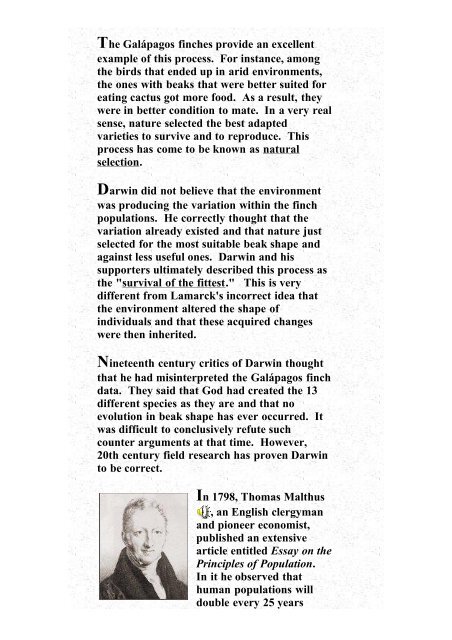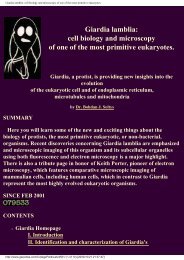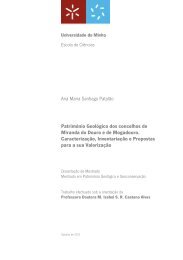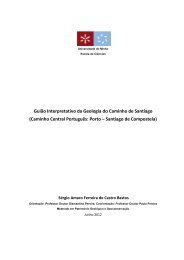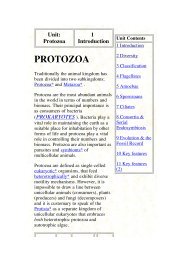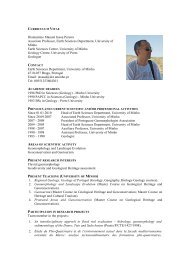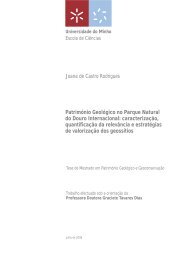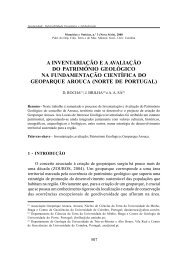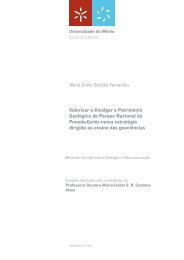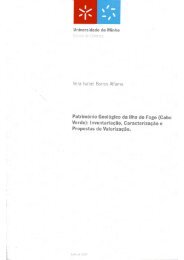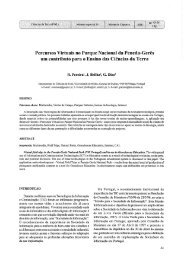Pre-Darwinian Theories
Pre-Darwinian Theories
Pre-Darwinian Theories
You also want an ePaper? Increase the reach of your titles
YUMPU automatically turns print PDFs into web optimized ePapers that Google loves.
The Galápagos finches provide an excellent<br />
example of this process. For instance, among<br />
the birds that ended up in arid environments,<br />
the ones with beaks that were better suited for<br />
eating cactus got more food. As a result, they<br />
were in better condition to mate. In a very real<br />
sense, nature selected the best adapted<br />
varieties to survive and to reproduce. This<br />
process has come to be known as natural<br />
selection.<br />
Darwin did not believe that the environment<br />
was producing the variation within the finch<br />
populations. He correctly thought that the<br />
variation already existed and that nature just<br />
selected for the most suitable beak shape and<br />
against less useful ones. Darwin and his<br />
supporters ultimately described this process as<br />
the "survival of the fittest." This is very<br />
different from Lamarck's incorrect idea that<br />
the environment altered the shape of<br />
individuals and that these acquired changes<br />
were then inherited.<br />
Nineteenth century critics of Darwin thought<br />
that he had misinterpreted the Galápagos finch<br />
data. They said that God had created the 13<br />
different species as they are and that no<br />
evolution in beak shape has ever occurred. It<br />
was difficult to conclusively refute such<br />
counter arguments at that time. However,<br />
20th century field research has proven Darwin<br />
to be correct.<br />
In 1798, Thomas Malthus<br />
, an English clergyman<br />
and pioneer economist,<br />
published an extensive<br />
article entitled Essay on the<br />
Principles of Population.<br />
In it he observed that<br />
human populations will<br />
double every 25 years


